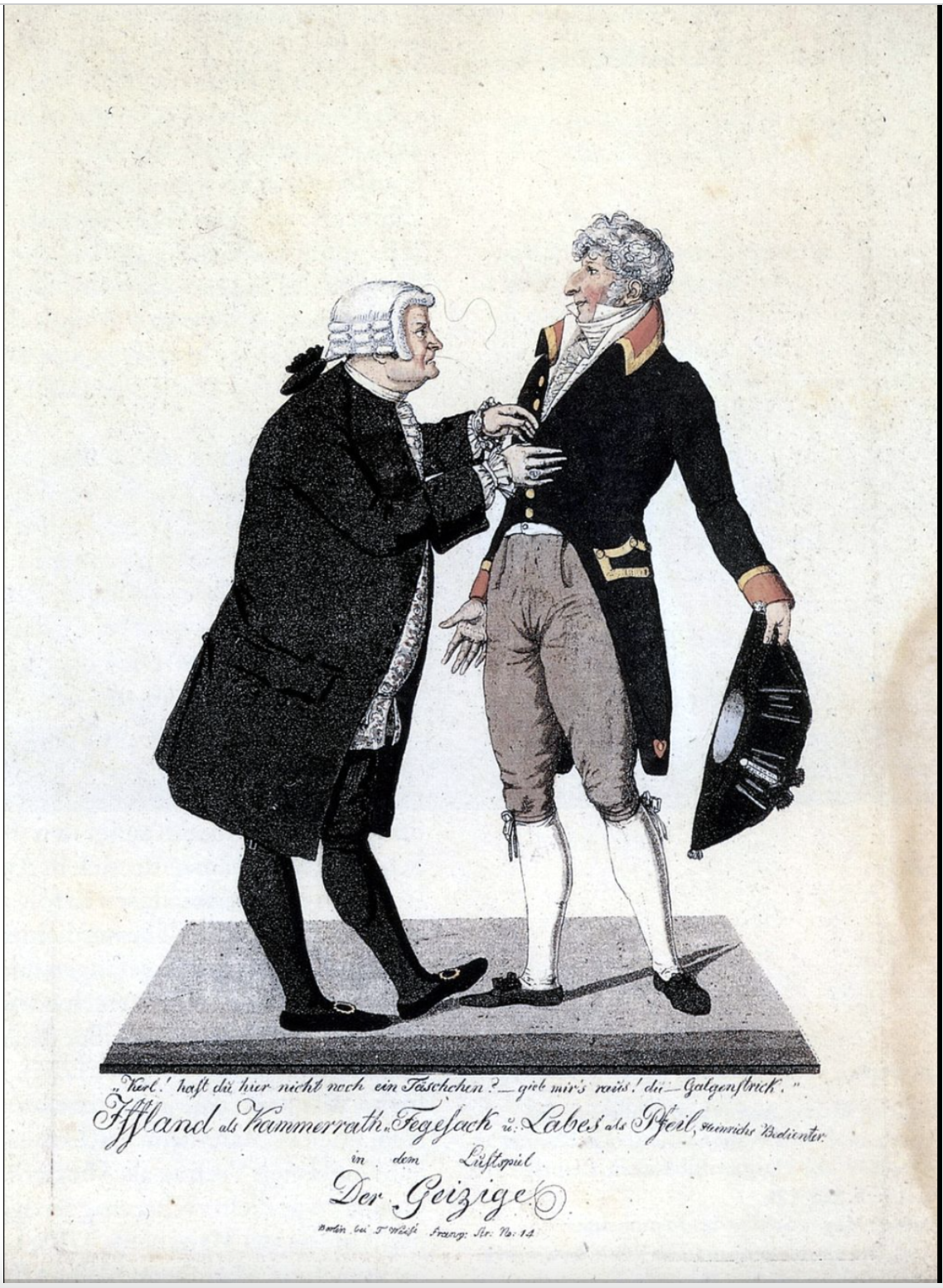August Wilhelm Iffland alla Scuola di Mannheim
DOI:
https://doi.org/10.62336/unibg.eac.33.482Parole chiave:
Germania, Attore, Scuola, Settecento, RecitazioneAbstract
Allievo di Conrad Ekhof, nonché modello di interprete ‘idealista’ per il Goethe impegnato nell’elaborazione della Weimarer Klassik, dal 1779 e fino al 1796 (quando prende la direzione del Nationaltheater di Berlino), August Wilhelm Iffland (1759-1814) agisce al Teatro Nazionale di Mannheim. Posto dal 1778 sotto la direzione di von Dalberg (1750-1806), il teatro - improntato ai criteri più moderni della pratica direttoriale, attento all’evoluzione della recitazione e alla formazione dell’attore - divenne per Iffland una vera ‘scuola’, dei cui insegnamenti avrebbe fatto tesoro negli anni della piena maturazione artistica. Incrociando la lettura dei protocolli del teatro, l’autobiografia dell’attore e il corpus delle sue riflessioni teoriche, l’articolo si propone d’indagare il valore e la funzione formativa della Mannheimer Schule.

Downloads
Pubblicato
Come citare
Fascicolo
Sezione
Licenza
Copyright (c) 2024 Elephant & Castle

TQuesto lavoro è fornito con la licenza Creative Commons Attribuzione 4.0 Internazionale.





